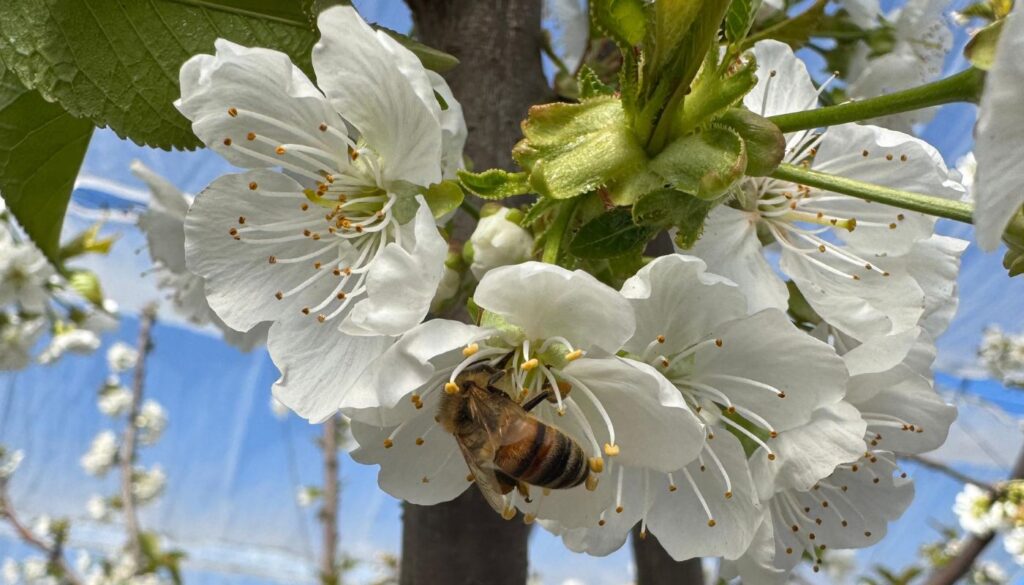The new Irrigation Law is a reality. The Congress of the Republic approved yesterday afternoon the project that modifies and extends for seven years the validity of Law No. 18,450 for the Promotion of Private Investment in Irrigation and Drainage Works.
The Senate Chamber gave its unanimous support to the initiative, which was welcomed by the Minister of Agriculture, Esteban Valenzuela, who described it as an “inclusive and sustainable irrigation reform.”
During his speech at the session, the Secretary of State stressed that the new Irrigation Law will increase state support for small and medium-sized agriculture and for irrigation communities and organizations. He also explained that this will be an important tool for the agricultural sector to adapt to climate change, but also a lever to promote sustainable rural development.
“A new, modern and inclusive irrigation law has been unanimously approved, which focuses on small and medium-sized producers, where the major gaps in technology are and, as the senators have highlighted, with sustainability, seriousness and betting on management systems that help all agriculture in this global climate crisis,” said Minister Esteban Valenzuela at a press conference.
For his part, the executive secretary of the National Irrigation Commission (CNR), Wilson Ureta, thanked the collaboration of all political sectors in the approval of this law and highlighted that “We have put farmers at the forefront of public policy, as the focus for improving their quality of life. This has been achieved through a wider range of project types, better opportunities to access resources focused on small and medium-sized farmers and with much higher environmental standards.”
Unanimous Support
During the debate held yesterday afternoon, senators Gastón Saavedra, Alejandra Sepúlveda, Isabel Allende, Carmen Gloria Aravena, Juan Castro Prieto and José Miguel Durana spoke. During the debate, the legislators shared the importance of promoting reservoir, irrigation and drainage works, especially after climatic events, such as the recent rains, which generated an emergency with various flooded areas.
After approval, Senator Alejandra Sepúlveda said that “We now have a law that is very consistent and that has been able to involve all political sectors. This is the most important law in agriculture that also promotes irrigation, but also the possibility of having irrigation that is consistent with something that is very important to us, such as small and medium-sized agriculture. We believe that this is a law that focuses resources on those who need it most and with which we can make great transformations in the Chilean countryside.”
For Senator Juan Castro, he stated that “This law is very important for farmers. It took us more than three years to get it passed, we started from scratch, because there were some people who did not want to approve it, but fortunately, thanks to the work, the discussions and the effort of the Ministry of Agriculture, we were successful and managed to get it approved.”
For her part, Senator Isabel Allende explained that "We delayed because we had to reach a consensus to achieve a law with more redistributive justice and we are doing it for the small and medium-sized businesses, which is what they need and deserve. And, on the other hand, I cannot help but say that the commitment to add that a certain percentage of the savings be returned to its point of origin was fulfilled."
Senator José Durana also said that “This law benefits the entire country and extreme regions such as Arica and Parinacota, which have a special climate that allows them to bring their products in during the winter. And having the opportunity for private investment to also receive benefits from the CNR is very important for valleys that are very far away, when we compete with neighboring countries and when we can have crops in our foothills and in the valleys of Yuta and Azapa.”
Finally, Senator Carmen Gloria Aravena pointed out that “From now on, people who do not have titles, as well as tenants, borrowers, small farmers, will have a much better chance of being environmentally friendly, and above all, people who do not have irrigation and want to improve their system will be able to do so as well, especially in the north, where they had this difficulty (…) here is a demonstration that when politics is committed and wants to do things, it succeeds. This is the example that we must follow in many other issues that complicate things for us today.”
What are the main changes?
Promotes fair development
It establishes a new criterion for stratifying farmers by annual income from sales and services. It also focuses public resources on small and medium-sized agriculture.
- For individual projects, farmers with annual sales income greater than 50,000 UF will not be able to apply.
- Increases the bonus amounts of the Small Agriculture Program, from 400 UF to 1,000 UF for individual projects.
- It includes a new special line for small farmers' association projects, the amount of which does not exceed 5,000 UF.
Provides greater support to small-scale agriculture and indigenous peoples
- Small agricultural and peasant producers (INDAP Organic Law No. 18,910) and indigenous communities and associations will be able to access a maximum bonus of 95% of the total cost of the project.
- Indigenous communities and associations will be able to access a maximum bonus of 95% of the total cost of the project.
Promotes sustainable development
- No subsidies will be granted for drainage works that affect wetlands and peat bogs.
- Limitations are placed on the bonus for projects located on hillside soils.
Provides ongoing support and promotes innovation
- It expands the types of projects eligible for bonuses, taking into account, among other things, the continuous improvement of irrigation systems and nature-based solutions.
- Projects that promote innovation and new technologies will be supporteds associated with irrigation with application conditions and special benefits.










